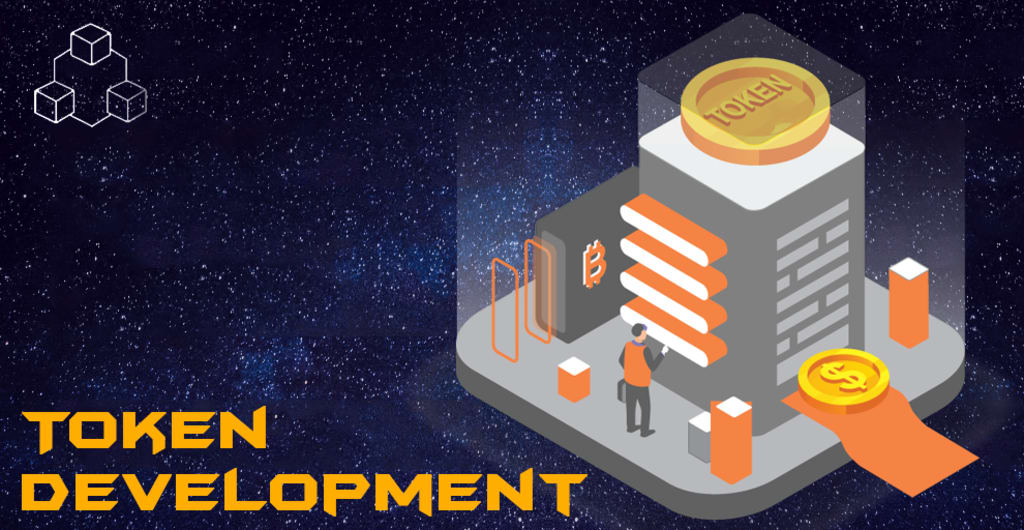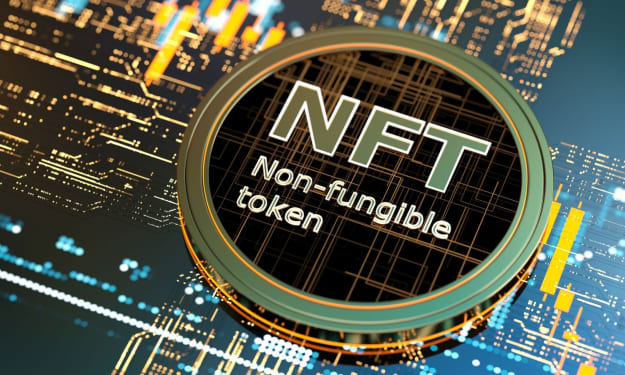Token Development: Unlocking the Potential of Blockchain
Token Development

In the ever-evolving landscape of blockchain technology, token development has emerged as a transformative force. Tokens, which represent digital assets or utility within a decentralized network, have opened up new possibilities for fundraising, transactions, and community engagement. In this article, we will delve deeper into the world of token development, exploring its key aspects and potential applications.
Understanding Tokens
- Utility Tokens
Utility tokens provide access to specific services or products within a decentralized network. They enable users to utilize the features and functionalities offered by a blockchain-based platform. Utility tokens can represent anything from access rights to digital services, voting power in decentralized governance systems, or rewards within a loyalty program.
- Security Tokens
Security tokens represent ownership in an asset or company and are subject to regulatory frameworks. These tokens offer investors ownership rights, such as equity or dividends. Security tokens are designed to comply with securities regulations, ensuring investor protection and legal compliance.
- Non-Fungible Tokens (NFTs)
Non-Fungible Tokens (NFTs) are unique digital assets that can represent ownership of a specific item, artwork, or collectible. Unlike cryptocurrencies or utility tokens, NFTs are indivisible and cannot be exchanged on a one-to-one basis. They have gained significant attention in the art world, enabling artists to tokenize and sell their digital creations.
The Token Development Process
- Defining Purpose and Use Cases
Before embarking on token development, it is crucial to clearly define the purpose and use cases of the token. Understand how the token will provide value within the ecosystem and what problems it aims to solve.
- Choosing the Right Blockchain Platform
Selecting the appropriate blockchain platform is essential for token development. Consider factors such as scalability, transaction fees, community support, and smart contract capabilities when choosing between platforms like Ethereum, Binance Smart Chain, or others.
- Selecting Token Standards
Token standards such as ERC-20, BEP-20, or SPL provide a blueprint for token development, ensuring compatibility and interoperability within the blockchain ecosystem. Choose the appropriate token standard based on the platform chosen and project requirements.
- Token Distribution and ICOs
Plan the token distribution strategy, including allocation for team members, investors, and community participants. If applicable, design an Initial Coin Offering (ICO) or token sale process to raise funds. Ensure compliance with regulatory requirements and consider the legal aspects of token sales.
- Smart Contract Development
Develop secure and robust smart contracts to govern the behavior and functionality of the token. Smart contracts automate the execution of transactions and define the rules and logic of the token's operations. Engage experienced blockchain developers to create and audit smart contracts for enhanced security.
- Token Security and Audits
Token security is paramount to protect investors and users from potential vulnerabilities. Conduct thorough security audits of smart contracts and perform penetration testing to identify and address any weaknesses. Consider engaging third-party security firms for independent audits.
- Token Wallet Integration
Integrate the token with popular wallets to ensure easy storage and management for users. Wallet integration enhances the token's accessibility and usability. Supporting hardware wallets and mobile wallets can provide additional security and convenience.
- Token Listing on Exchanges
To enable trading and liquidity, list the token on reputable cryptocurrency exchanges. Research and identify suitable exchanges that align with the project's goals. Meet the listing requirements and comply with regulatory guidelines for a successful token listing.
Token Development Best Practices
- Thorough Market Research
Conduct comprehensive market research to understand the competitive landscape, target audience, and market trends. This research will help you position your token effectively and identify potential opportunities for adoption and growth.
- Engaging the Community
Building and engaging a supportive community is crucial for the success of a token project. Foster open communication channels, actively listen to feedback, and provide regular updates to keep the community informed and involved in the development process.
- Scalability and Interoperability
Consider the scalability and interoperability of your token. As blockchain technology continues to evolve, it is important to future-proof your token by choosing platforms and standards that can accommodate growth and ensure compatibility with other blockchain networks.
- Legal and Regulatory Compliance
Complying with legal and regulatory frameworks is essential for the long-term viability of your token project. Stay informed about the legal landscape and consult with legal experts to ensure compliance with securities regulations, data protection laws, and any other relevant legislation.
- Continuous Improvement and Innovation
Token development is an ongoing process that requires continuous improvement and innovation. Regularly evaluate and enhance the functionality and utility of your token to meet the evolving needs of users and stay ahead of the competition.
Potential Applications of Tokens
- Decentralized Finance (DeFi)
Tokens have revolutionized the world of decentralized finance (DeFi), offering new financial instruments, such as lending and borrowing platforms, decentralized exchanges, and yield farming protocols. Tokens enable individuals to access financial services without relying on traditional intermediaries.
- Gaming and Virtual Assets
Tokens have found extensive applications in the gaming industry, enabling the ownership and trade of in-game assets, virtual currencies, and digital collectibles. Tokenization provides players with true ownership and the ability to monetize their gaming achievements.
- Supply Chain Management
Tokenizing supply chain processes can enhance transparency, traceability, and efficiency. Tokens can be used to represent physical goods, track their movement across the supply chain, and automate processes such as inventory management, authentication, and provenance verification.
- Real Estate and Tokenized Assets
Tokenization of real estate and other tangible assets offers fractional ownership opportunities, making traditionally illiquid assets more accessible to a broader range of investors. Tokens can represent shares in properties, allowing for efficient transfer of ownership and liquidity.
- Voting and Governance Systems
Tokens provide a decentralized and transparent way to facilitate voting and governance in various contexts. They enable stakeholders to participate in decision-making processes, such as protocol upgrades or project governance, based on the number of tokens they hold.
Challenges and Considerations
- Regulatory Landscape
Navigating the regulatory landscape surrounding token development can be challenging, as regulations vary across jurisdictions. It is essential to stay informed about the legal requirements and consult legal experts to ensure compliance.
- Security Vulnerabilities
Tokens and smart contracts are susceptible to security vulnerabilities, which can result in financial losses or reputational damage. Thorough security audits, code reviews, and penetration testing are essential to identify and mitigate potential vulnerabilities.
- Market Volatility
The cryptocurrency market is known for its volatility, which can impact the value and perception of tokens. It is crucial to consider market dynamics and develop strategies to manage potential risks associated with market volatility.
- Scalability Issues
As blockchain networks become more widely adopted, scalability issues may arise. High transaction fees and network congestion can hinder the smooth functioning of tokens. It is important to choose blockchain platforms that can handle increased usage and explore layer 2 scaling solutions.
- User Adoption and Education
Token projects require user adoption for success. Educating users about the benefits and functionalities of tokens is crucial for driving adoption. User-friendly interfaces, educational resources, and intuitive user experiences can help bridge the gap between blockchain technology and mainstream users.
The Future of Token Development
Token development continues to evolve and innovate, unlocking new opportunities across industries. As blockchain technology matures and scalability solutions improve, tokens are expected to become more accessible, secure, and integrated into everyday life. The future of token development holds the potential for enhanced financial inclusion, transparent governance systems, and decentralized economies.
Conclusion
Token development is a transformative process that empowers businesses and individuals to leverage the potential of blockchain technology. By understanding the different types of tokens, following a structured development process, considering best practices, and exploring potential applications, you can unlock the true value and potential of tokens. Embrace the challenges, stay informed, and continuously innovate to create tokens that contribute to a decentralized and interconnected future.





Comments
There are no comments for this story
Be the first to respond and start the conversation.